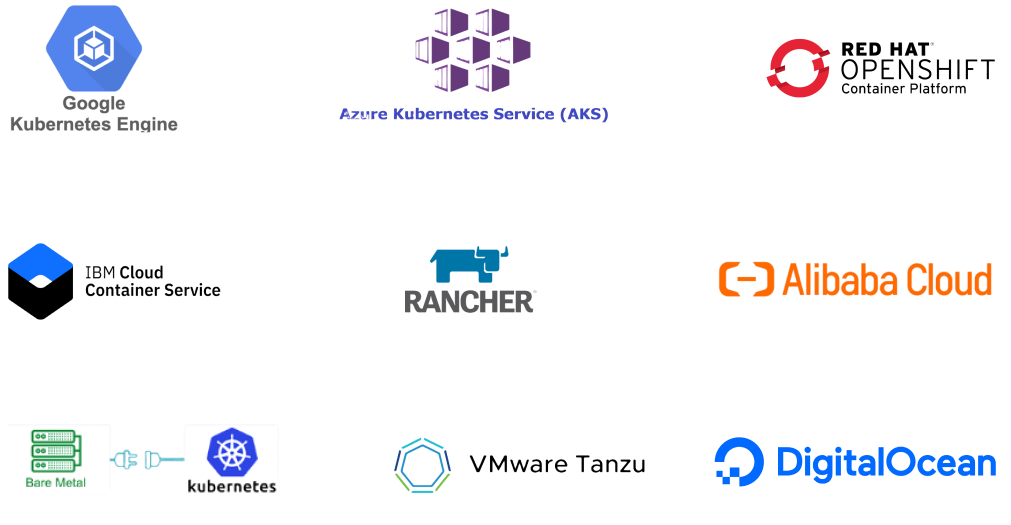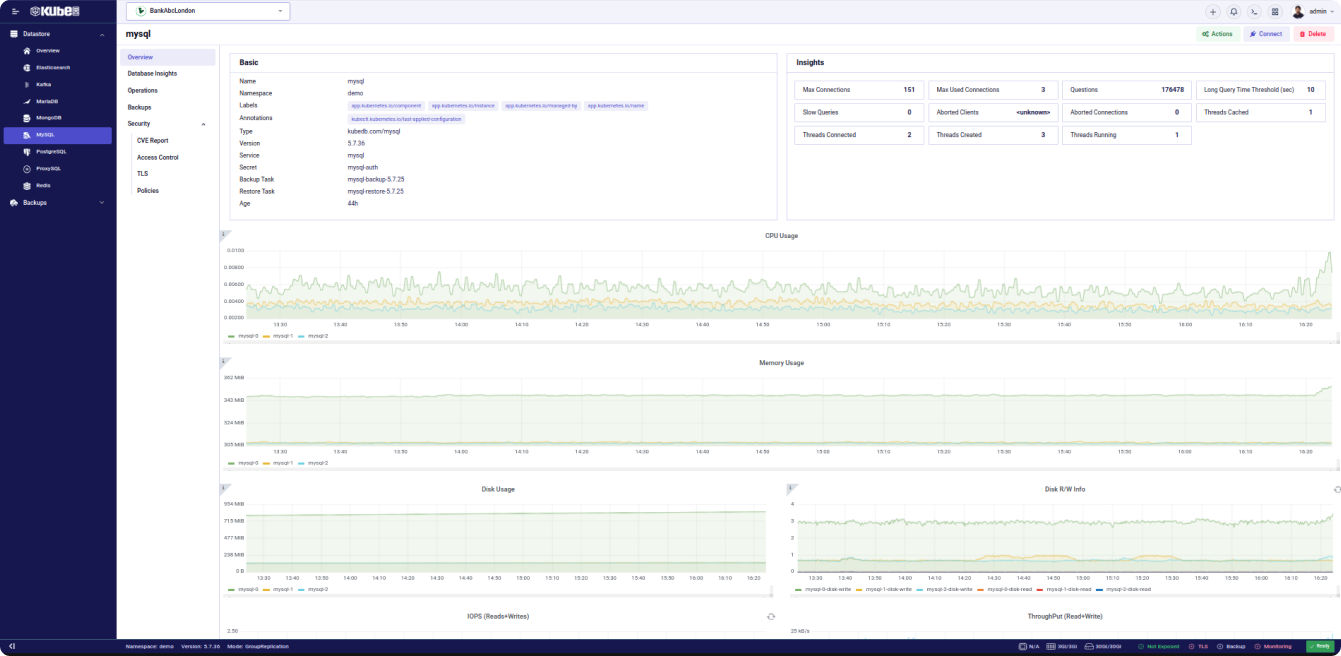1apiVersion: kubedb.com/v1
2kind: Redis
3metadata:
4 name: redis-demo
5 namespace: demo
6spec:
7 deletionPolicy: Delete
8 replicas: 1
9 storage:
10 accessModes:
11 - ReadWriteOnce
12 resources:
13 requests:
14 storage: 1Gi
15 storageClassName: standard
16 storageType: Durable
17 version: 7.2.3

Select your preferred platform and enjoy deployment, scalability and management. Join us in embracing the future of application deployment.

KubeDB Enterprise edition is charged by the memory limit set to database containers managed by KubeDB (not the memory of Kubernetes worker nodes). Say, a 3 replicas PostgreSQL each with 8 GB RAM will count as 24GB memory for billing purposes.
| Silver | Gold | Platinum | |
|---|---|---|---|
| Recommended for | Cloud style Self-service plan for production databases | For production databases | For business and/or mission critical databases |
| Support Coverage | Self-Service | 8x5 ⏰ | 24x7 ⏰ |
| Response Times SLA | Best Effort | Yes | Yes |
| Quarterly Updates | Yes | Yes | Yes |
| Emergency patches | No | Yes | Yes |
| Incident Tickets (with SLA coverage) | N/A | 5/mo | 10/mo |
| Contacts for Ticketing | 1 | 5 | 10 |
| Onboarding Support | Yes | Yes | Yes |
| Remote Hands (via screen share) for addtl fee | Yes | Yes (Includes FREE 3 hrs/month) | Yes (Includes FREE 5 hrs/month) |
| Production Runbook | No | Yes | Yes |
| Dedicated Private chat (via Discord) | No | Yes | Yes |
| Phone Support | No | No | Yes ☎ |
| Custom Features | No | Additional fee | Additional fee |

Here are a few of the questions we get the most. If you don't see what's on your mind, contact us anytime.
KubeDB follows an open-core model. The API and client are available under Apache v2 License for integration with client projects.
KubeDB was started in 2017 and has since been deployed across numerous clients, including large-scale deployments.
KubeDB differentiates itself with its comprehensive Day 2 operations, encompassing monitoring, alerts, backup/recovery, version upgrades and scaling functionalities.
Unlike DB vendor's operators, using KubeDB, you can conveniently fulfill all your database requirements under a single contract and with minimum engineering efforts.
KubeDB offers a wide array of database options, supporting multi-cloud and on-premises environments while providing cheaper / cost-effective solutions.